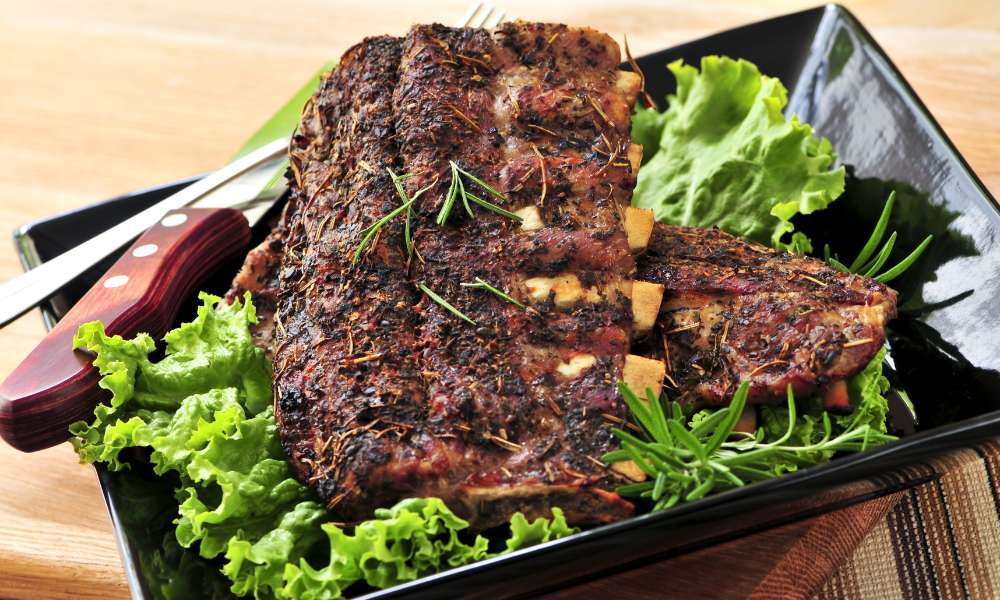Unlock the secret to mastering the art of BBQ Pork Spare Ribs with our comprehensive guide. Whether you’re a seasoned grill master or a novice backyard chef, learning how to bbq pork spare ribs is an essential skill that promises mouthwatering rewards. Delight your taste buds and impress your guests with tender, juicy ribs infused with smoky flavors. In this step-by-step tutorial, we’ll cover everything you need to know to elevate your barbecue game to the next level. From selecting the perfect cut of meat to mastering the art of seasoning and smoking, we’ll walk you through each stage of the process. Discover why bbq is a beloved favorite among enthusiasts and uncover the key techniques that ensure succulent, fall-off-the-bone perfection every time.
How Long Should I Marinate Pork Spare Ribs Before Grilling?
The ideal marinating time for pork spare ribs before grilling typically ranges from 2 to 24 hours. Marinating the ribs for at least 2 hours allows the flavors of the marinade to penetrate the meat and enhance its taste. However, if you have more time available, marinating the ribs for up to 24 hours can result in even more flavorful and tender ribs.
Can I Cook Pork Ribs On A Gas Grill?
Yes, you can definitely cook pork ribs on a gas grill. To achieve the best results, it is recommended to preheat the grill to medium heat and then place the ribs on the grill, bone side down. You can season the ribs with your favorite dry rub or marinade for added flavor. It is important to monitor the temperature of the grill and adjust as needed to ensure even cooking.
Homemade Sauce Recipes
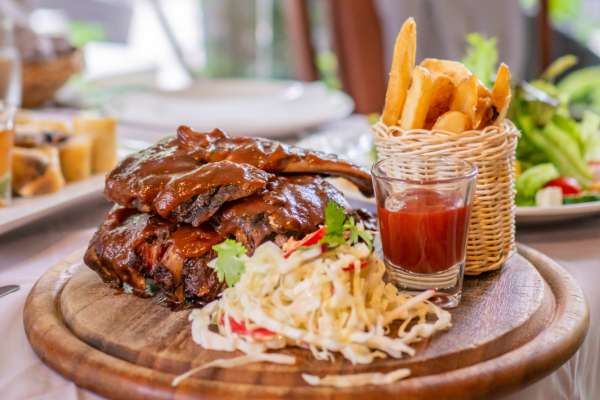
Creating your own homemade sauce for BBQ pork spare ribs can elevate your grilling game to a whole new level. One classic recipe involves a blend of ketchup, brown sugar, apple cider vinegar, Worcestershire sauce, and an array of spices like paprika and garlic powder. For those looking to experiment with flavors, adding ingredients such as honey or mustard can bring a unique twist to the traditional sauce.
Refrigeration Guidelines
The marination process is critical for infusing your pork spare chest with deep flavors and ensuring that they remain juicy and tender during cooking. After applying your marinade or rub, proper refrigeration is key. Refrigerating your ribs for at least 4 hours, or overnight, allows the flavors to penetrate deeply into the meat. This step is essential for achieving that succulent, fall-off-the-bone texture that BBQ enthusiasts strive for. Always remember to keep the marinating meat in the coldest part of your refrigerator to maintain food safety.
Applying The Sauce Or Rub
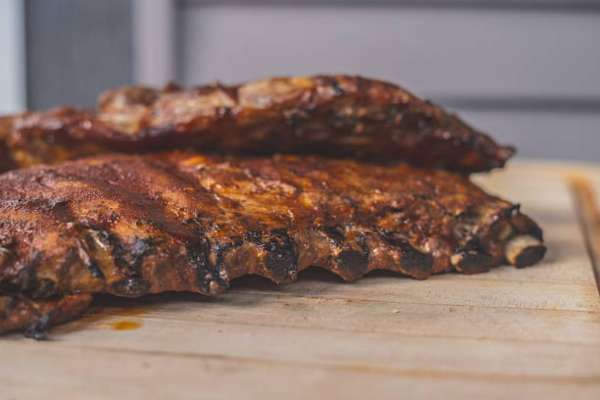
One approach is to start with a dry rub of salt, pepper, garlic powder, and paprika to bring out the richness of the pork. Allow it to sit for at least an hour before slow-cooking on low heat until tender. Once cooked, you can opt for a traditional barbecue sauce brushed on generously during the final stages of cooking for that classic sweet-meets-smoky finish. Experimentation is key here; don’t be afraid to mix and match different rubs and sauces until you find your perfect combination that suits your palate.
Checking For Doneness
1. Visual Cues
Visual cues play a significant role in determining the doneness of making bbq pork ribs. One of the most reliable visual indicators is the meat pulling away from the bones. As the ribs cook, the meat will shrink slightly and expose more of the bone. Additionally, the surface of the ribs will develop a beautiful caramelized crust, known as bark, which signals that they’re nearing completion. Keep a close eye on the color and texture of the meat, as it should appear moist and juicy, with a slight char from the grill.
2. Temperature Testing
Temperature testing is another essential method for checking for doneness when bbqing pork spare chest. Using a reliable meat thermometer, insert the probe into the thickest part of the meat, being careful to avoid touching the bone. The internal temperature of properly cooked ribs should reach between 190°F and 203°F. This ensures that the meat is fully cooked and tender, without being overdone or dry. By using a thermometer, you can take the guesswork out of cooking ribs and ensure consistently delicious results every time you grill.
3. Tenderization Indicators
Tenderization indicators offer valuable insights into the doneness of bbq pork spare ribs. One of the most reliable indicators is the bend test. Using a pair of tongs, lift the ribs from one end and observe how they bend. Fully cooked ribs should exhibit a slight bend and begin to crack on the surface. Another method is the fork test, where a fork easily pierces the meat without resistance. If the ribs feel tough or rubbery, they require more time on the grill to reach the desired tenderness. Mastering these tenderization indicators will help you achieve perfectly cooked ribs with ease.
Flipping And Basting Techniques
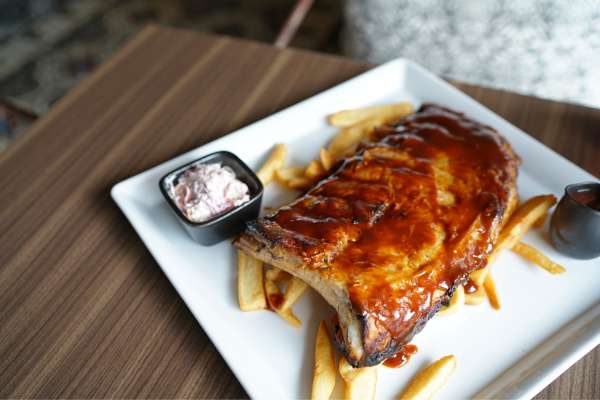
Basting, on the other hand, involves brushing a flavorful sauce onto the ribs throughout the cooking process. This not only adds layers of taste but also helps keep the meat moist and tender. To enhance the flavors, consider creating your basting mixture using ingredients like honey, apple cider vinegar, and paprika for a sweet yet tangy finish. Experimenting with different basting combinations can elevate your BBQ pork spare rib game to new heights of deliciousness.
Handling Raw Meat
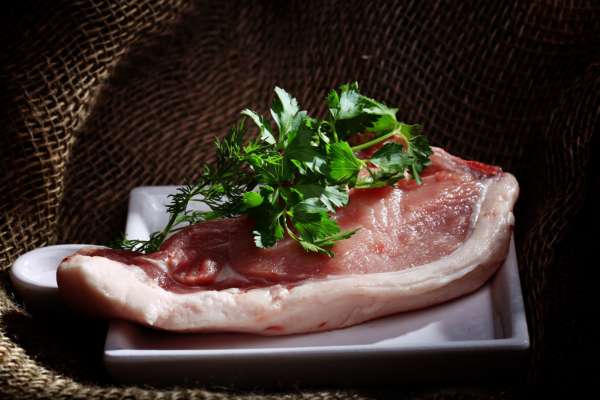
Proper handling of raw pork ribs is critical for food safety and quality. This section must cover the essentials of meat preparation, including washing hands and surfaces thoroughly, avoiding cross-contamination, and the importance of using separate utensils for raw and cooked meat. Highlighting the best practices for handling raw pork will reassure readers of their ability to manage the preparation process safely and efficiently, ensuring their BBQ is not only delicious but also prepared with the utmost care for hygiene.
Experimenting With Different Woods
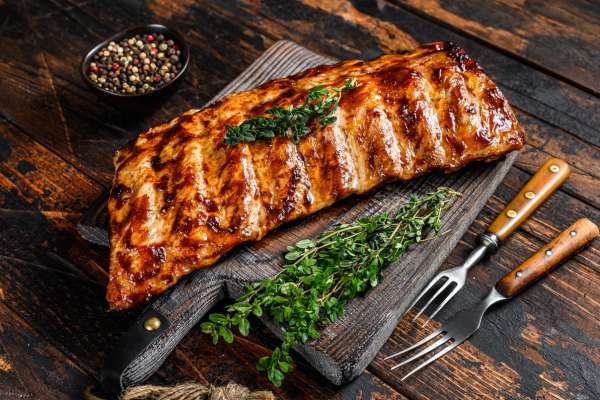
Applewood offers a sweeter and milder smoke flavor, bringing out the natural sweetness of the pork while adding a subtle fruity note. Mesquite wood, on the other hand, is known for its intense and earthy flavor profile that can impart a bold and distinct taste to your pork spare chest. By trying out various wood options in your BBQ cooking, you can tailor the final taste to suit your preferences and create a memorable dining experience for yourself and your guests.
Tips For Perfect Ribs
1. Maintaining Consistent Heat
Maintaining consistent heat is crucial when it comes to achieving perfectly cooked BBQ pork spare ribs. One often overlooked but effective method is the two-zone fire setup. By creating a hot zone for searing and a cooler zone for slow cooking, you can control the temperature more easily and prevent flare-ups. Another tip is to invest in a quality smoker or grill with precise temperature control features, such as thermostats or dampers, to help maintain a steady heat level throughout the cooking process. Additionally, using high-quality charcoal or wood chips can also contribute to more consistent heat distribution and better flavor infusion into the meat.
2. Avoiding Common Mistakes
Several common mistakes can derail your barbecue from reaching their full potential. First, avoid the temptation to constantly open the grill or smoker to check on the ribs, as this releases heat and smoke, leading to uneven cooking. Another mistake is neglecting the pre-cook preparation, such as removing the membrane from the back of the ribs, which can result in tougher meat. Additionally, be cautious with your use of sauce; applying it too early can lead to burning due to the high sugar content. Instead, brush your ribs with sauce during the last 30 minutes of cooking to achieve a caramelized finish without charring.
3. Experimenting With Flavors
Beyond traditional rubs and sauces, consider marinating your ribs overnight to deepen the flavor profile. Experiment with different woods in your smoker to impart unique smoky tones, like hickory for a classic taste or cherry wood for a sweeter touch. Don’t be afraid to blend spices in your rubs or incorporate unexpected ingredients into your sauce, such as coffee or fruit jams, to create a signature flavor that sets your ribs apart.
Healthier Bbq Sauce Alternatives
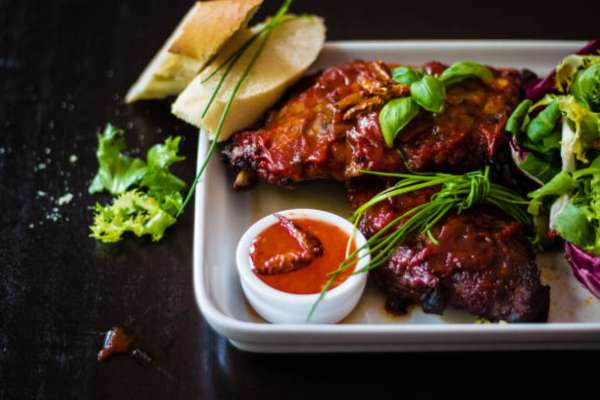
A healthy alternative worth trying is a smokey tomato-based BBQ sauce made with fresh tomatoes, smoked paprika, and cayenne pepper for an added kick. This homemade sauce is low in sugar and contains no artificial additives, providing a wholesome option for those looking to enjoy their barbecue without compromising on flavor or health benefits. Experimenting with different BBQ sauce recipes can help you discover new ways to enhance the taste of your grilled dishes while also making smarter choices for your overall well-being.
Managing Multiple Grill Setups
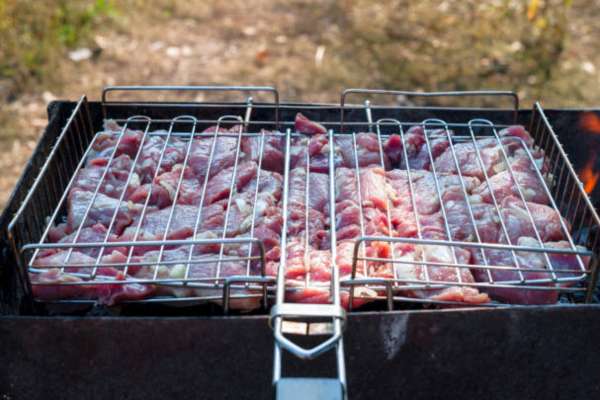
Managing multiple grill setups can be a game-changer when it comes to hosting large gatherings or events. Whether you have different types of grills or multiple units of the same model, organization is key. When preparing various dishes simultaneously, assigning specific grills for different meats or cooking methods can streamline the process and ensure everything is cooked to perfection. By strategically planning the setup and utilizing each grill’s unique features, you can maximize efficiency and ultimately impress your guests with a delicious spread.
The Final Thought
Mastering the art of BBQ pork spare ribs requires attention to detail and patience. By following the steps outlined in this guide, you can achieve perfectly cooked and flavorful ribs that will impress your guests. Remember to season generously, monitor the temperature carefully, and allow for adequate cooking time to ensure tender and juicy results. With practice and dedication, you can become a pro at BBQing pork spare chest. So fire up the grill, gather your ingredients, and get ready to enjoy some mouthwatering ribs at your next barbecue gathering.
